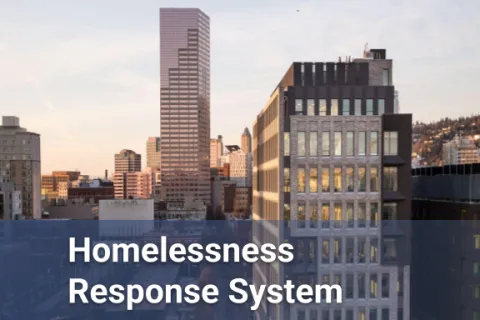- Apply to join the Steering and Oversight Committee
- Follow our progress: Homelessness Response Action Plan Dashboard
- Sign up for our newsletter

The City-County Homelessness Response System is a reset of the community's response to homelessness. The system is implementing the Homelessness Response Action Plan, a multi-year roadmap focused on setting and reaching shared goals, increasing transparency, and working together to address the homelessness crisis.
This is being accomplished with a collaborative oversight structure that's guiding the work and strengthening links between healthcare partners, community members, the justice system, housing providers, service providers, treatment providers and government partners at all levels.

